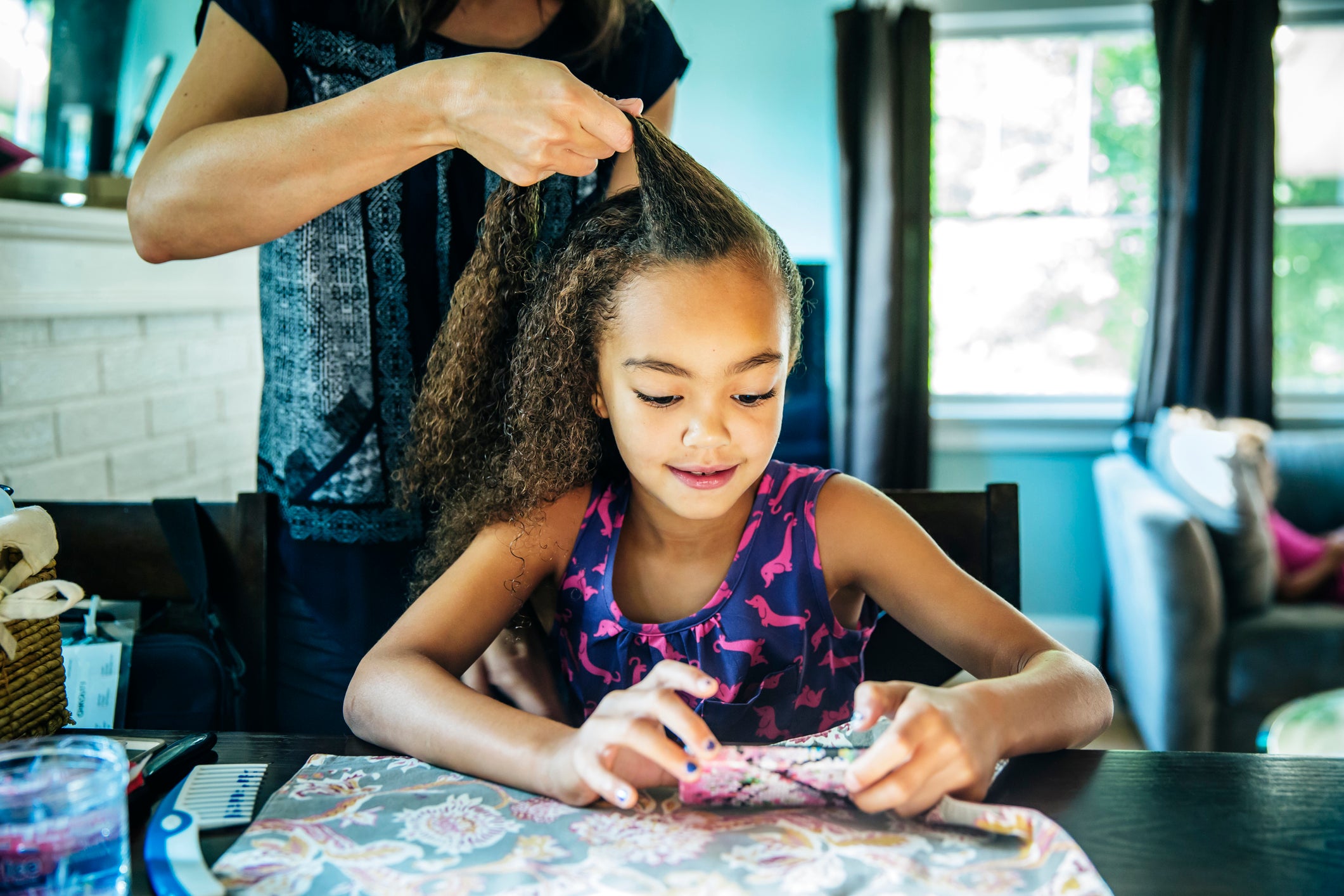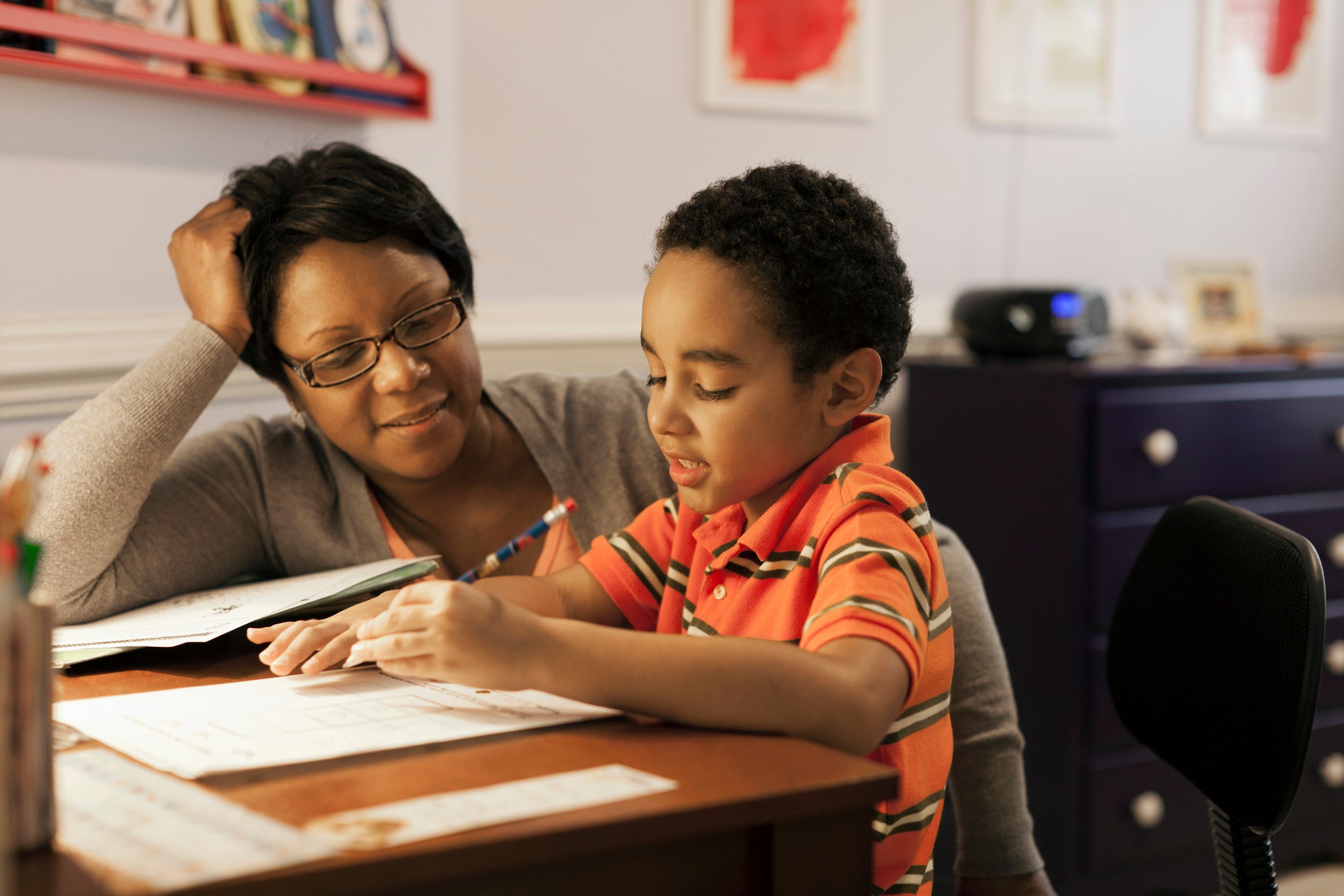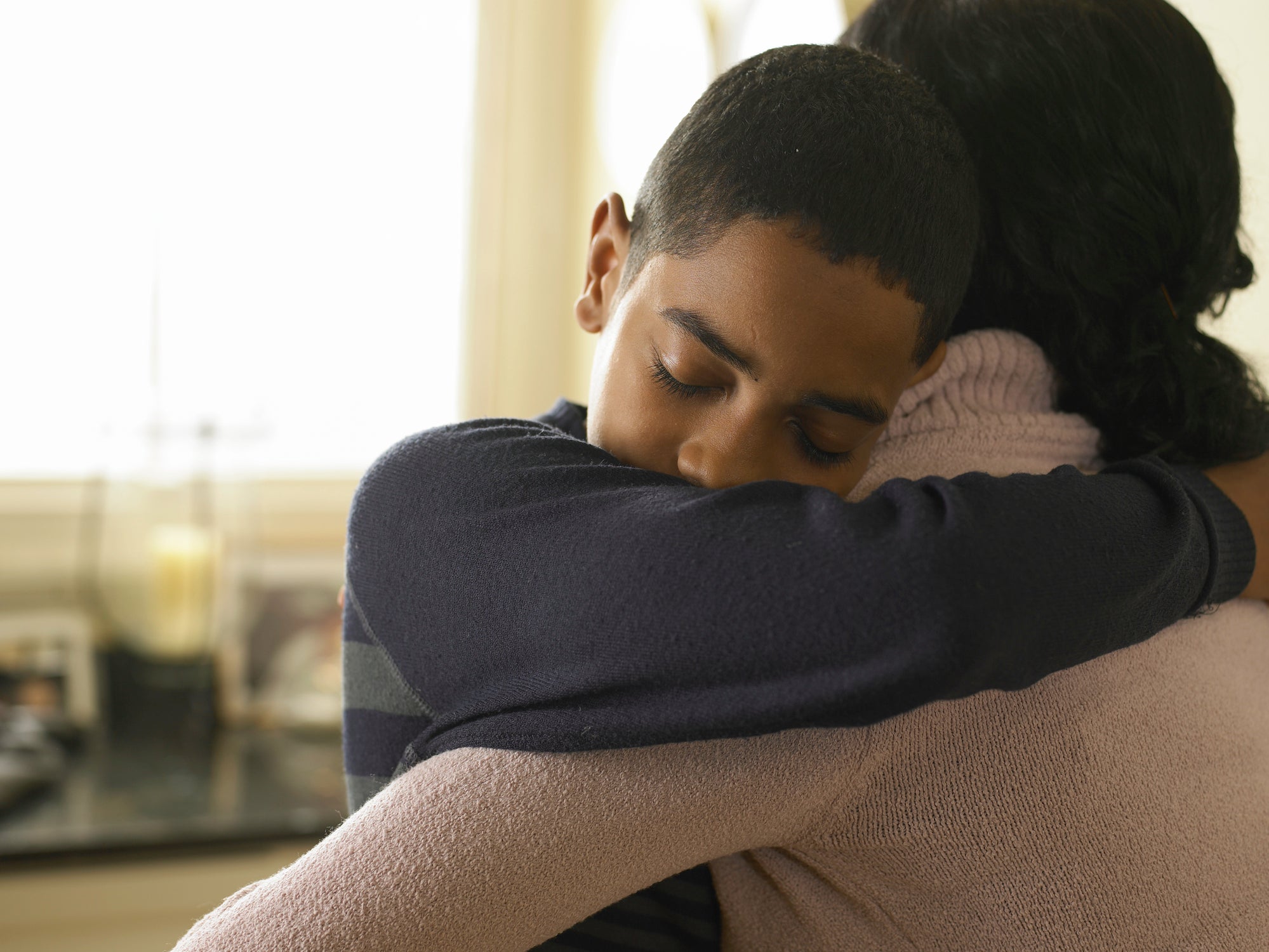Getting your Trinity Audio player ready…
Parents everywhere are likely letting out a sigh of relief as kids gear up to head back to school. Depending on what state you live in, your child may already have resumed classes, meaning you have your TV back, your light bill is slowly going back down, and the snack cupboard is finally getting some rest. But as your kids start a new journey at school, it’s a critical time to think about important conversations to have with them. When they’re in school full-time, they’re spending more time there than at home, so you want to prepare them for life outside of the house and set expectations.
Here are a few conversations you should be having with your kids during the school year according to experts.
01
Changes To Schedules and Routines
No matter how old your child is, talking through new routines as they transition from summer to fall is important. Let them know ahead of time what will change, and give them time to adjust.
“Identify and discuss morning routines, [and] bedtime routines,” says Tabatha Ferrer, LMSW, and CEO of The 4AIR Project. “Will their child be attending any after-school activities, will there be family time and check-ins weekly? If the parent has a younger child, it is important to inform them of who will pick them up from school and if there are any changes with the pickup person.”
Ferrer adds that keeping the child up to speed can reduce stress and anxiety. Back to school can be both exciting and overwhelming, so this practical conversation can make the transition easier.
02
Goals for the School Year
Setting goals for the year is a way to give your child something to work towards and focus on throughout the school year. While it is ok for you to set goals for them, it can be empowering for them to set goals for themselves or be active participants in the process. Try to set micro and macro goals that address all areas of your child’s development.
“The overall year goal may be to advance to the next grade but what about smaller goals?” says Ferrer. “Does your child want to be student of the month? Does your child want to audition for a team? Does the child want to make new friends?”
Don’t forget to develop a roadmap for how you’re going to achieve those goals, too. When discussing goals, open up the floor to talk about any concerns and worries they have about resuming school too. You can then provide goals that address those concerns and affirm your child in the process.
03
Expectations on Both Sides
Having expectations of your child shows them that you hold them to a certain standard and that can be good for their development. Be clear about what you expect from them this school year, and of course extend grace too.
Timmesha Butler, psychotherapist and owner of Mastery Counseling and Consulting LLC provides examples of expectations you can set with your child during the conversation.
“In addition to some of your individual expectations add the following: I expect you to learn, I expect you to face challenges, I expect you to respect yourself, your peers, and school staff. I expect you to be tired and exhausted some days, I expect you to have days that feel easy, and most of all I expect you to make every day your best one.”
04
Dealing With Peer Pressure
Peer pressure is something we all experience and kids are often more susceptible to it.
“Peer pressure is likely to happen to your child, and you are not always going to be in the position to control it,” says Butler. “Let them know that you understand how difficult it can be to avoid the negative peer pressure, however, whenever they choose to engage in negative peer pressure they must be willing to deal with the consequences. Let them know that in the event they are unable to avoid it, you will try your best to guide them through it.”
When we hear the words “peer pressure,” our minds often jump straight to negative influences, but peer pressure can be positive too. “Peer pressure is not always negative or destructive,” Butler adds. She says helping your child understand the two sides of peer pressure and consequences of both is necessary. When discussing it, know that it may also be good to remind them about how to set boundaries and say no when negative pressure arises.
05
Anxiety Around Health Scares
With monkeypox, COVID and other health issues still rampant, your kids may feel anxious about how it will affect their health or disrupt education. Butler says asking your kids how they’re feeling and validating their feelings can help them feel heard and seen. When they tell you, avoid minimizing or invalidating their feelings. Once you validate their concerns, you can swoop in with an action plan.
“To the best of your abilities, explain that while many things can be uncertain, there are some things we can do individually to limit our risk. You should also explain that in areas where we have no control at all, there are coping skills we can put in place to deal with it,” she says. “If you are unsure of what those coping skills look like, connect with your school counselors and ask them to help teach your child coping skills that are specific to their current challenges.”
06
How They Want to Start the Day
Mornings for parents can be chaotic, especially if you’re rushing to work and taking the kids to school. Sometimes you may find you spend the whole morning fussing at your kids, and this doesn’t set the best tone for their day. How can you set them up for success in the morning? One way is through affirmations.
“I believe morning affirmations are a great way to begin a morning. It’s a great tool for youth to use to challenge any negative thoughts and/or feelings they may have,” says Ferrer. You can put these affirmations on sticky notes, on a white board, or in a notebook. It may also be a good activity to come up with the affirmations together.
What if your child is not a morning person and isn’t up for affirmations? Butler says you should discuss what they would prefer, be it a handshake or hug instead.
All of these conversations are important, but patience and grace are needed too, says Butler. The school year can be stressful and lead to burnout, frustration and overwhelm for both parents and children. But learning to regulate your emotions can make things easier. “Kids really do want to do good and they want parental approval. Being able to self-manage as an adult is extremely important when communicating with children. Your child needs to know that no matter how good or bad the circumstances are, their parents can keep their cool when disappointed, frustrated, or upset,” she says. Remember to show grace to and be patient with yourself this school year too.






